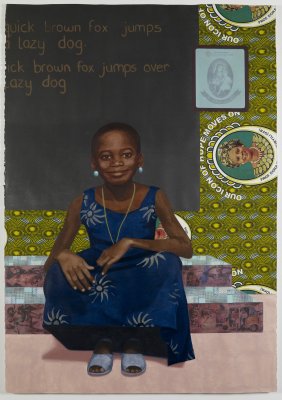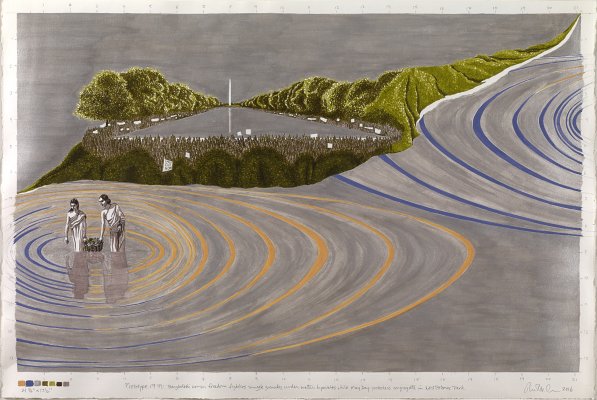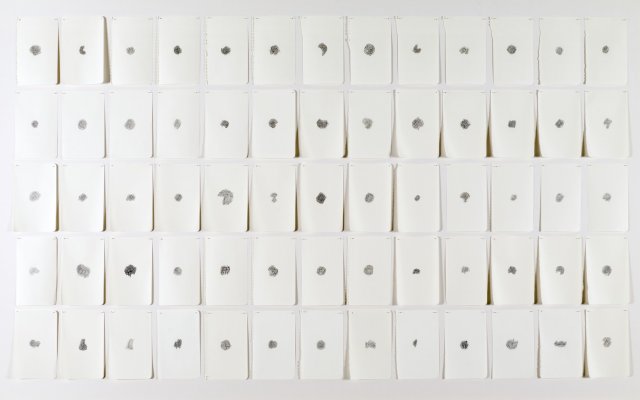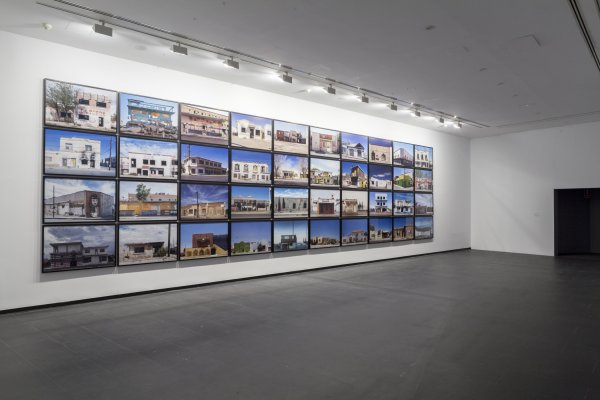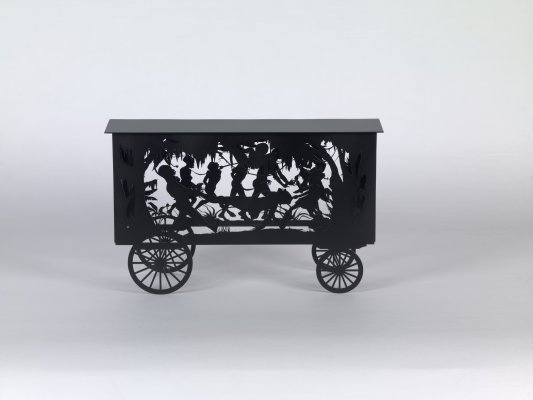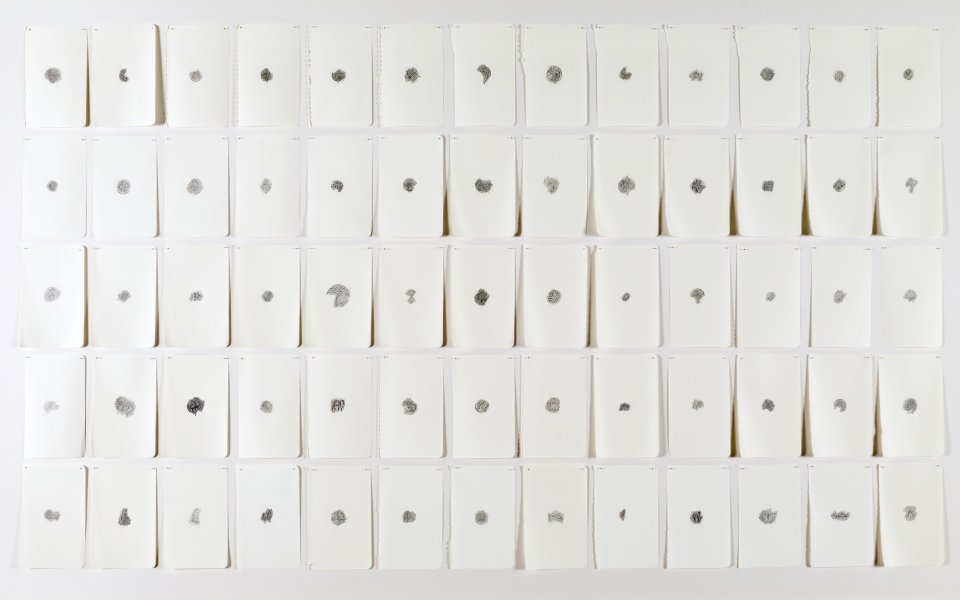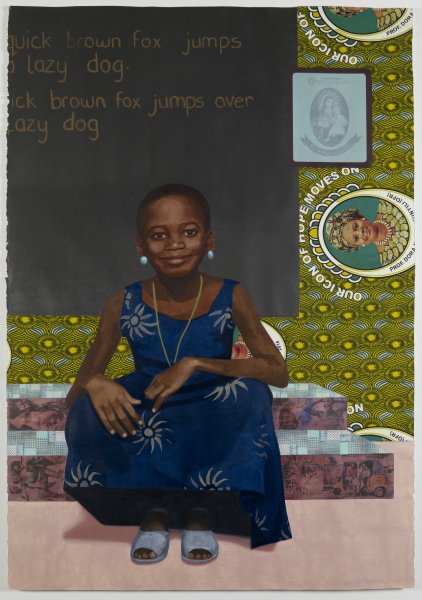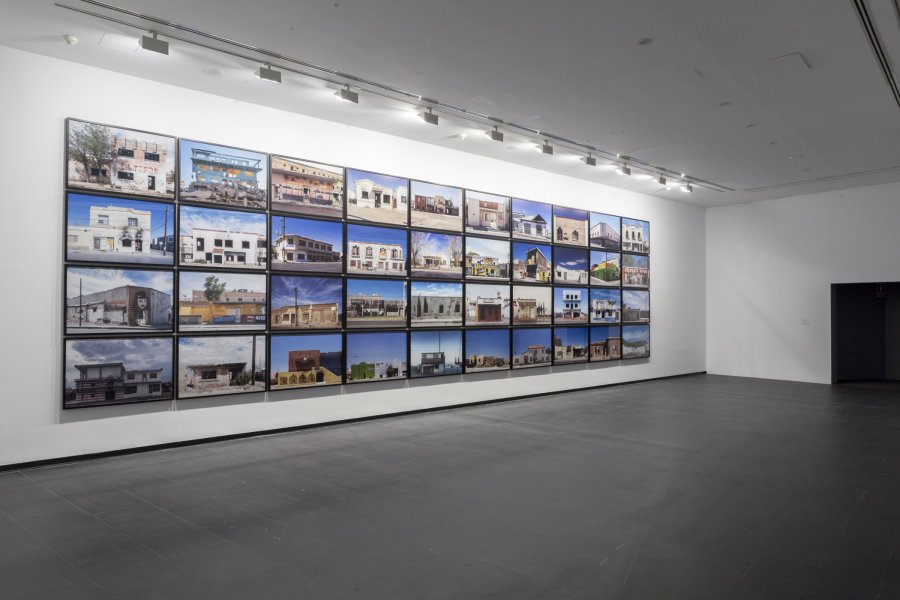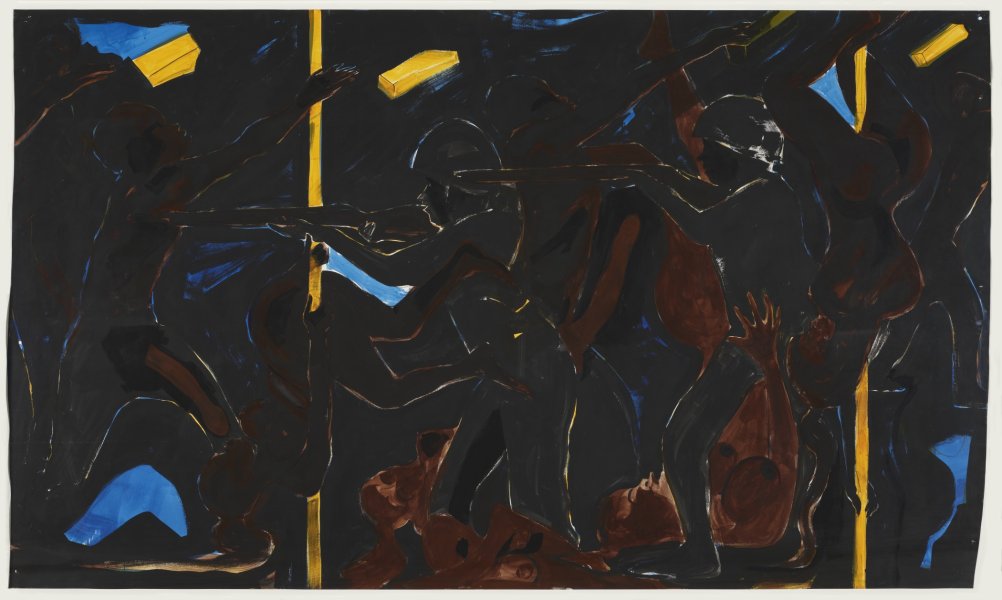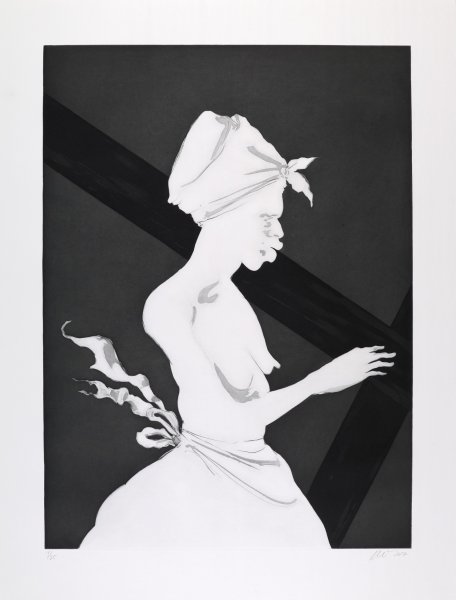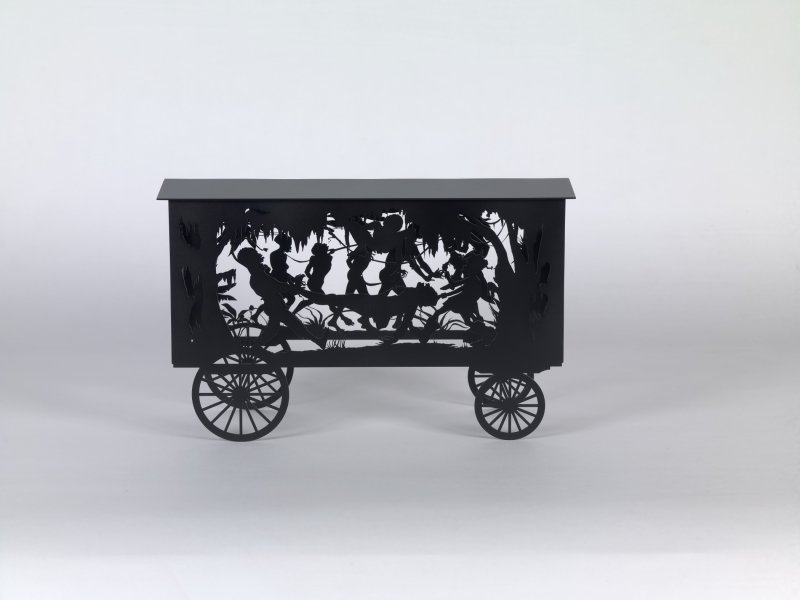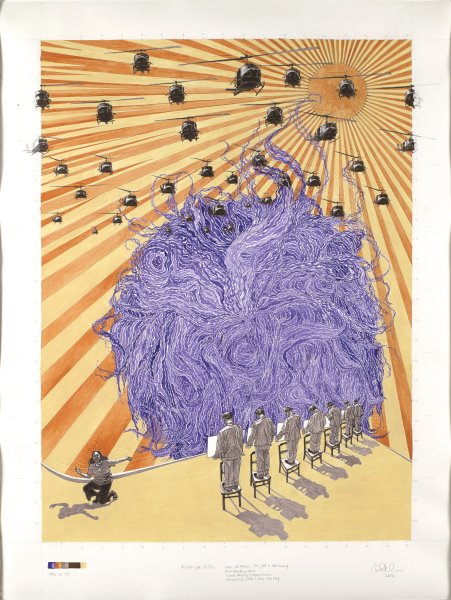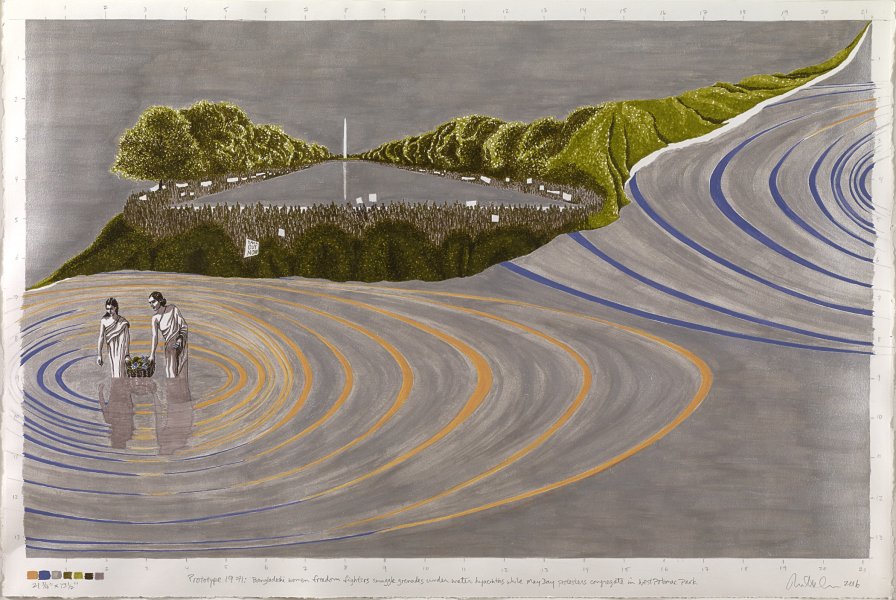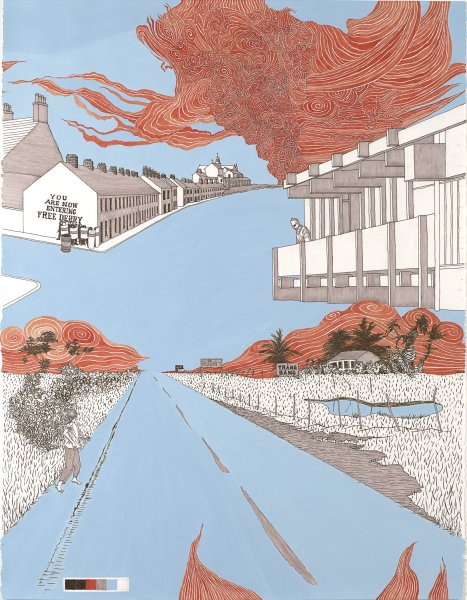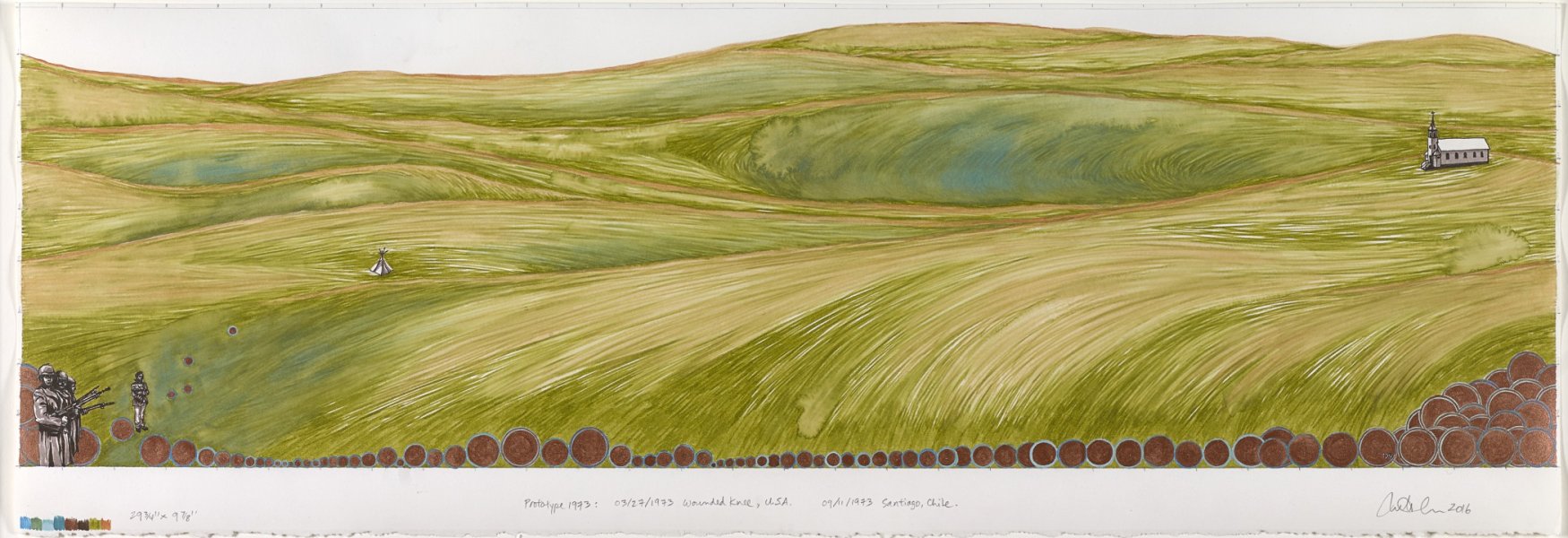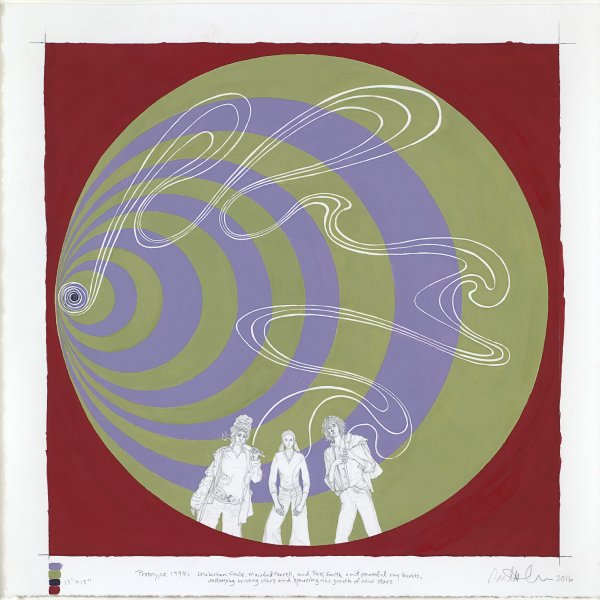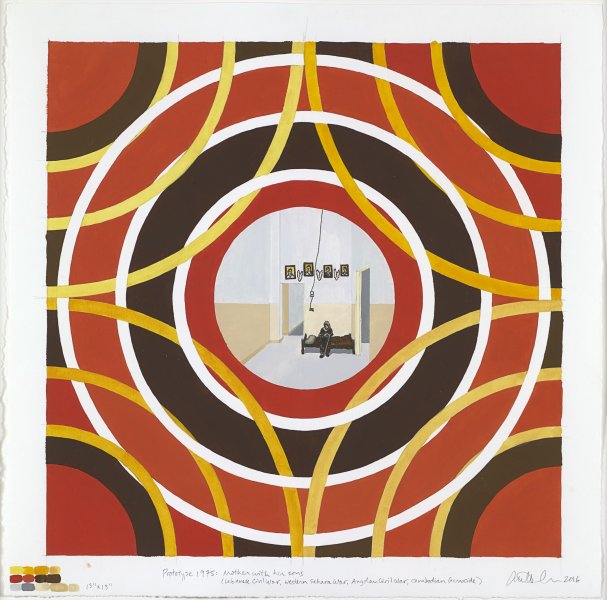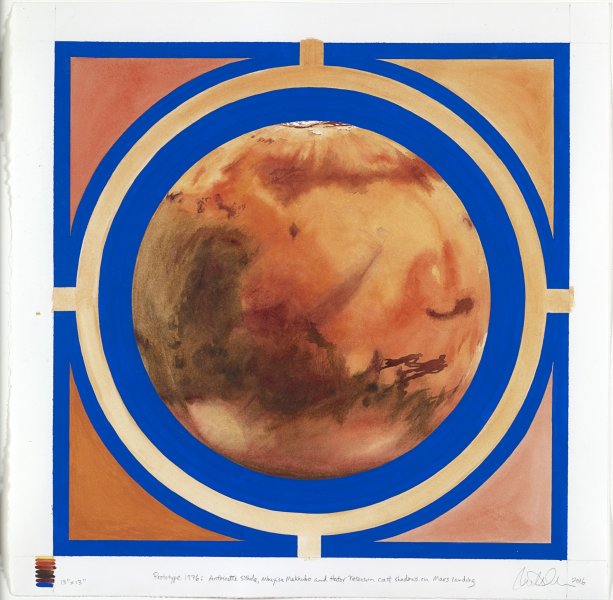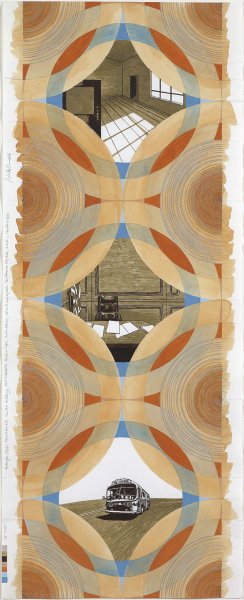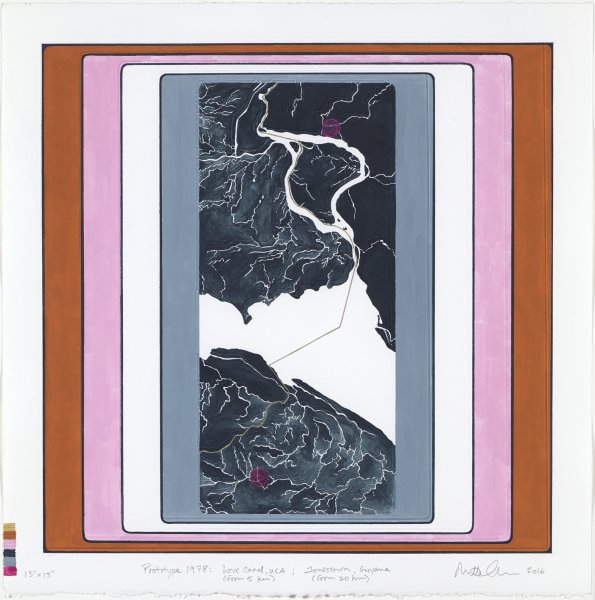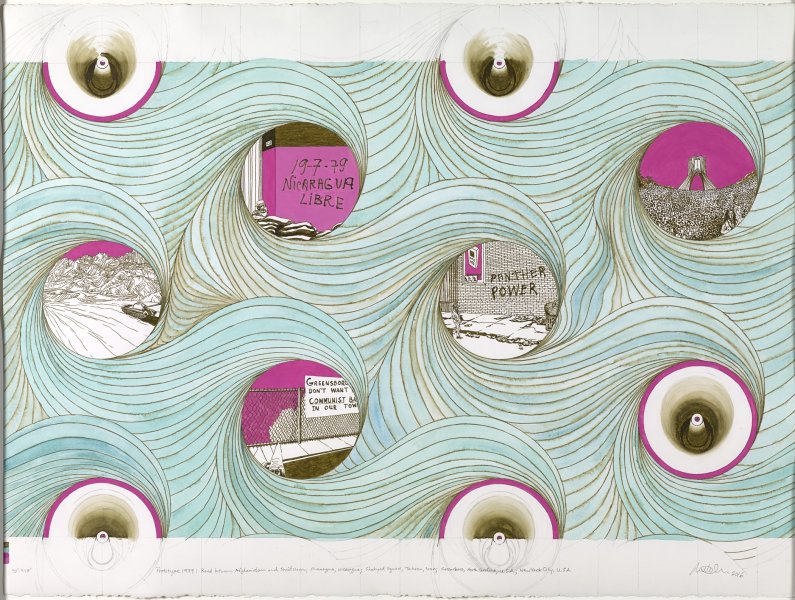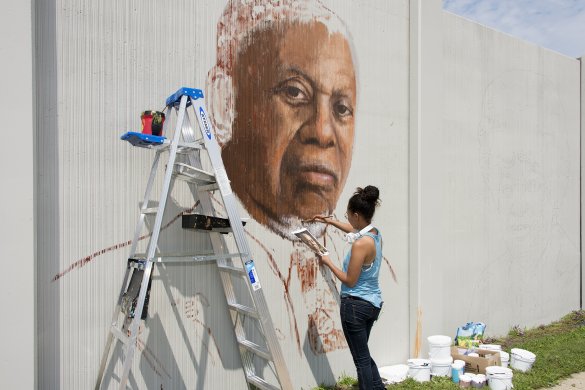On the occasion of Women’s History Month, and in conjunction with the National Museum of Women in the Arts’ third annual #5WomenArtists campaign, we're highlighting five women artists with works in our collection each week this month. This week we focus on artists whose works have been recently acquired by the museum.
Milena Bonilla created Money, 2012, by making 260 rubbings off the surfaces of coins from developing nations illustrated with plants or animals. She then used these drawings to create a series of “maps” where nations are not demarcated by territorial boundaries but, instead, are identified by the natural resources they have chosen to associate with monetary value. Bonilla’s decision to use coins conveys the threat that consumerist culture poses to our ecological resources. Hers is an imaginary world where nature rises above flags or territorial borders.
Millie Chen’s series, "Prototypes 1970s" consists of ten wallpaper designs, one for each year between 1970 and 1979. Each design documents an event, or series of events, that occurred in the given year. For instance, in Prototype 1972: Londonderry/Munich/Trang Bang, Chen links the sites of a trio of violent incidents that occurred across the globe in 1972: Bloody Sunday in Londonderry, Northern Ireland; the Palestinian terrorist attack on Israeli Olympic team members in Munich, Germany; and the napalm bombing of the Vietnamese village of Trang Bang.
Njideka Akunyili Crosby’s "The Beautyful Ones" Series #5, 2016, belongs to an ongoing series of portraits of the artist’s family members. The title of the series, “The Beautyful Ones,” is borrowed from the 1968 novel The Beautyful Ones Are Not Yet Born by Ghanaian writer Ayi Kwei Armah. The subject of this particular image is Akunyili Crosby’s mother as a young student, smiling as she sits on what is presumably the stoop of a school. The artist presents an intimate portrait of aspiration and female accomplishment across generations, and an affirmation of the transformative power of education.
Over the course of her career, Teresa Margolles has invented ways to represent the consequences of violence and corruption. Taking Ciudad Juárez as a case study, she archives, collects, and catalogues imagery, sounds, testimonies, and objects that can give insight into the realities and traumas of this border town. The photographic series Esta finca no será demolida presents buildings in varied states of abandonment and ruin. Margolles began the project as a way of documenting the buildings before they were demolished. In a very direct way, she shows the ways in which prolonged violence affects citizens’ ability to continue to run businesses or carry on with their everyday lives.
Kara Walker was commissioned to create a work for the 2018 New Orleans–based triennial Prospect. Titled after the Haitian Creole word for “catastrophe,” Katastwóf Karavan takes the form of a wagon-mounted, 32-note, fully functioning steam calliope. The Albright-Knox’s work, The Katastwóf Karavan (maquette), 2017, is an editioned sculpture Walker created after the maquette for this work. It features scaled-down versions of the silhouettes that surround the boisterous calliope. Drawing on the imagery of the Antebellum South, Walker highlights the legacy of the subjugation of African-American lives.
